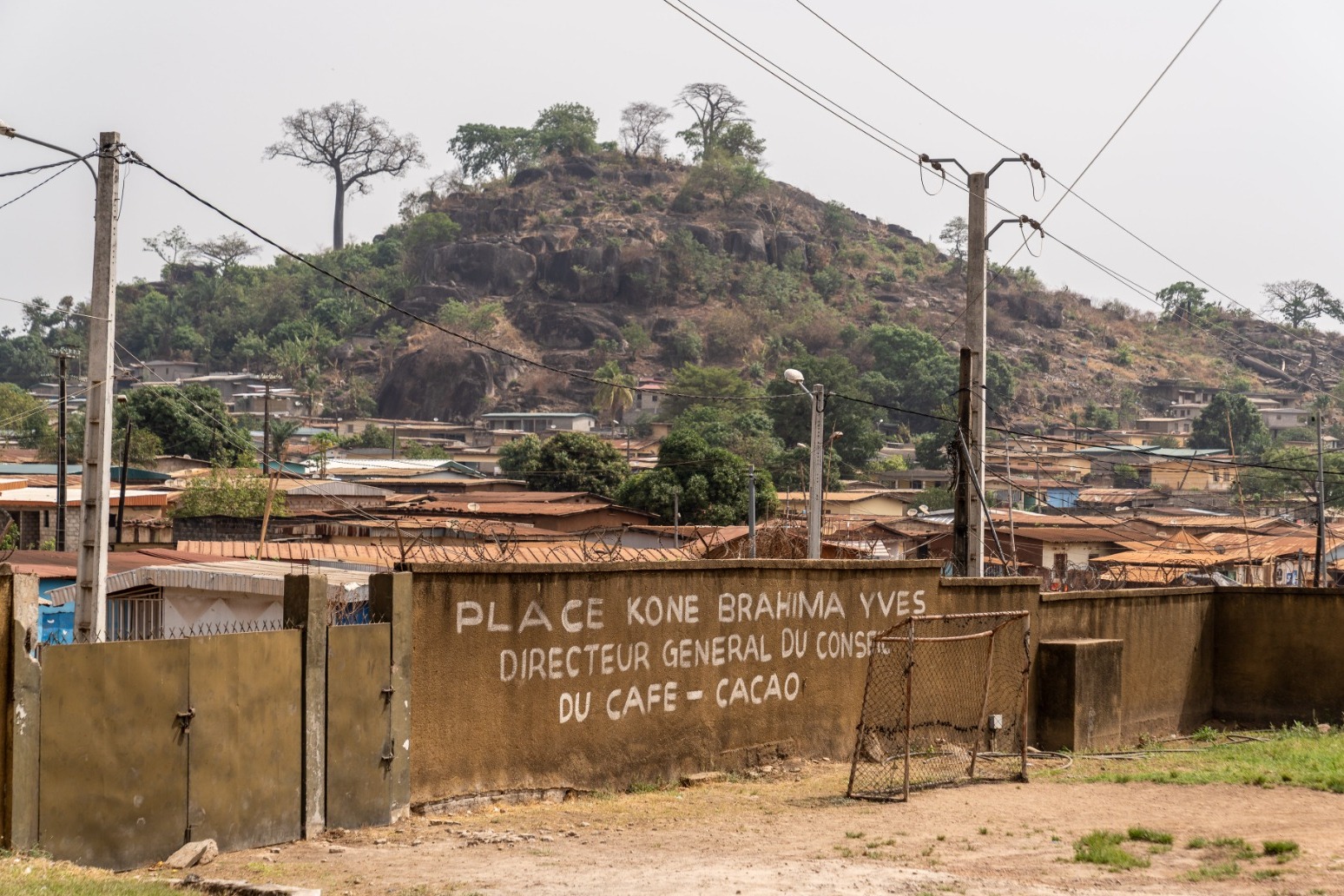Listeners:
Top listeners:
-
 play_arrow
play_arrow
Rother Radio (128K) Love Local, Love Music!
-
 play_arrow
play_arrow
Rother Radio (64K) Love Local, Love Music!
-
 play_arrow
play_arrow
Rother Radio (Doncaster) (128K) Love Local, Love Music!
-
 play_arrow
play_arrow
Rother Radio Xmas Love Local, Love Music!
-
 play_arrow
play_arrow
Rother Radio – Special Announcement Love Local, Love Music!
Climate change will destroy cocoa yields by 2030 without support, farmers warn
today17/04/2025


Cocoa yields will be “destroyed” by 2030 without financial support and fairer markets, Ivory Coast farmers have warned.
The West African nation is the biggest producer of cocoa in the world, with farmers in the Bafing-Tonkpi region supplying chocolate to global markets, including the UK.
But years of depressed prices have eroded farmers’ ability to reinvest in their land, meaning aging trees, diseases and increasingly unpredictable climate conditions have caused productivity to plummet and prices to skyrocket.
While UK shoppers pay 50% more for some chocolate products this Easter, farmers living in poverty at the other end of the supply chain are getting little financial benefit at the farm gate.
Yeyasso, a farming co-operative based in the western city of Man, said production from its 5,000 cocoa producers has dropped by 30% in recent years, prompting many to turn to farming other commodities, such as rubber or palm.
Biabate Posseni, 34, a Yeyasso farming lead who helps to train cocoa farmers and monitor their practices, said: “Climate change is strongly impacting the yield.
“When we wait for rain, rain doesn’t come, and when we need sun, there is no sun and instead we get a lot of rain,” he told the PA news agency.
Like many in the area, Mr Posseni said he is “extremely worried” about the future if the situation worsens.
“By 2030, if nothing is done, we won’t have any cocoa trees because, with climate change, all the cocoa trees will be destroyed.
“There really is a need to gather support so we can tackle it together and keep growing cocoa.”
Vemo Bakayoko, 42, a cocoa farmer for Yeyasso in the area of Bogouine, said his two-hectare farm used to turn over 700 kilos of cocoa a year a decade ago, but last year he produced less than half of that at 300kg.
“We can see the change,” he said, describing how heavy rains are increasing the risk of black rot disease.
“We’re definitely scared because we don’t know if these unpredictable conditions will stop.”
Another major concern for Ivorian farmers is swollen shoot disease which has been spreading from the east of the country, causing bloated branches and misshapen fruit.
Fabrice Flan, a Yeyasso farmer from the village of Yapleu, has watched his household income almost disappear after his four-hectare farm was decimated by the virus in 2016.
“My farm was finished,” he said. “And this is my only farm. This is my only source of revenue for me and my family.”
Government, regulators and co-operatives are all rolling out efforts to tackle climate impacts facing producers, but resources remain scarce.
Thomas Adei, the regional director at the Ivorian ministry for agriculture, said agroforestry is “at the core” of the government’s policy, asking farmers to support biodiversity by planting fruit and shade trees on farms.
In the 1960s, yields were growing and diseases were few, Mr Adei said, but officials continued to push farmers to “produce, produce, produce”, leading to unsustainable practices and widespread deforestation.
“It was an abusive consumption of forest. It’s had a very, very, very negative impact on cocoa productivity in Cote d’Ivoire,” he told PA.
“When all is said, the Government is doing the best it can to address this issue because the livelihoods of farmers depend on it.”
As the UK and Europe prepare to introduce or enforce regulations that ban the sale of commodities linked to deforestation, the Ivorian authorities are also developing methods to ensure compliance.
Fadiga Mamadou Deye, head of the cafe-cocoa board for the Bafing-Tonkpi region, has been heading up a major farmer ID card pilot, which sees the gathering and storing all kinds of data, including annual yields, tree numbers and agroforestry efforts for each farm.
Fairtrade-certified co-operatives like Yeyasso have immediately signed on but others have less financial or logistical resources to reach all farmers.
“The major challenge is the sustainability of the sector,” Mr Deye said.
“If most stakeholders in the value change do not feel concerned about these challenges, it simply means that one day the co-operatives will disappear – vamoose.”
Yeyasso has also taken actions like geo-mapping its farms, setting up tree nurseries and planting about 140,000 new cocoa, fruit and shade trees.
But it is also the first globally to trial a new supermarket supply change initiative led by Fairtrade, which was recently greenlit by the UK’s competition watchdog.
The Shared Impact project is working to get supermarkets, such as M&S, to buy commodities on a longer-term contract together, boosting the impact for producers and offsetting the increased risk.
With the pilot, Yeyasso hopes to double the cocoa it sells on Fairtrade terms from 20% to 40%, boosting the premium payments it then spends on social impact and environmental initiatives.
More widely, Shared Impact could help to provide more income stability for farmers, provide funds for training, enable the recruitment of more staff and offer investment certainty to struggling co-operatives, Doumbia Abou Zeid, the chairman of Yeyasso’s board said.
“When you have longer term contracts, it’s good for sustainability,” he said.
“With short-term contracts nothing is certain. At any time the job can stop and so, of course, (farmers) are demotivated and will then look for better opportunities outside the cocoa industry.”
M&S is the first supermarket to sign onto Shared Impact, working with Fairtrade and Yeyasso to ensure proof of concept, while talks continue with other major supermarkets.
Lucinda Langton, head of sustainability at M&S Food, said: “This new Shared Impact model offers us the opportunity to strengthen the resilience of our cocoa supply chains by better supporting our growers and producers in the way they farm and boosting their incomes.”
Kerrina Thorogood, director of partnerships at Fairtrade Foundation, said: “Traditionally, companies worked on their own sustainability goals, but this fragmented approach limited impact.
“Fairtrade’s groundbreaking Shared Impact initiative was created to scale up sustainability efforts by encouraging businesses to collaborate and pool sourcing for greater impact.”
Published: by Radio NewsHub
Written by: Radio News Hub
Similar posts
Now Playing
Now playing: -
On Air Now

Glen Campbell
The 80s and 90s Dance Party
Join Glen Campbell for the ‘Saturday Night 80's & 90's Dance Party, from 7pm’.
closeSponsored
Weather
Upcoming Local Event
Latest from Facebook
Search Rother Radio
Contact Us
- https://www.rotherradio.co.uk
- 01709 257 175
- studio@rotherradio.co.uk
About Us
Rother Radio – Love Local, Love Music! → Discover more
Our Partners
Rother Radio is owned by Rotherham Broadcasting CIC







